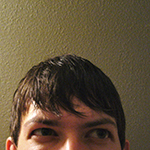another little hole

Interesting read today in the New York Times.
Michiko Kakutani's article comes in the wake of James Frey's admission that his Oprah Book Club worthy memoir "A Million Little Pieces" includes a healthy helping of fiction, to make it more exciting and memo(i)rable. Kakutani takes an interesting look at our culture and the continually blurring lines between fact and fiction.
An excerpt:
"James Frey's admission last week that he made up details of his life in his best-selling book "A Million Little Pieces" - after the Smoking Gun Web site stated that he "wholly fabricated or wildly embellished details of his purported criminal career, jail terms and status as an outlaw 'wanted in three states' " - created a furor about the decision by the book's publishers, Doubleday, to sell the volume as a memoir instead of a novel.
It is not, however, just a case about truth-in-labeling or the misrepresentations of one author: after all, there have been plenty of charges about phony or inflated memoirs in the past, most notably about Lillian Hellman's 1973 book "Pentimento." It is a case about how much value contemporary culture places on the very idea of truth. Indeed, Mr. Frey's contention that having 5 percent or so of his book in dispute was "comfortably within the realm of what's appropriate for a memoir" and the troubling insistence of his publishers and his cheerleader Oprah Winfrey that it really didn't matter if he'd taken liberties with the facts of his story underscore the waning importance people these days attach to objectivity and veracity.
We live in a relativistic culture where television "reality shows" are staged or stage-managed, where spin sessions and spin doctors are an accepted part of politics, where academics argue that history depends on who is writing the history, where an aide to President Bush, dismissing reporters who live in the "reality-based community," can assert that "we're an empire now, and when we act, we create our own reality." Phrases like "virtual reality" and "creative nonfiction" have become part of our language. Hype and hyperbole are an accepted part of marketing and public relations. And reinvention and repositioning are regarded as useful career moves in the worlds of entertainment and politics..."
Continue reading Bending The Truth In A Million Different Ways [NY Times]






0 Comments:
Post a Comment
<< Home